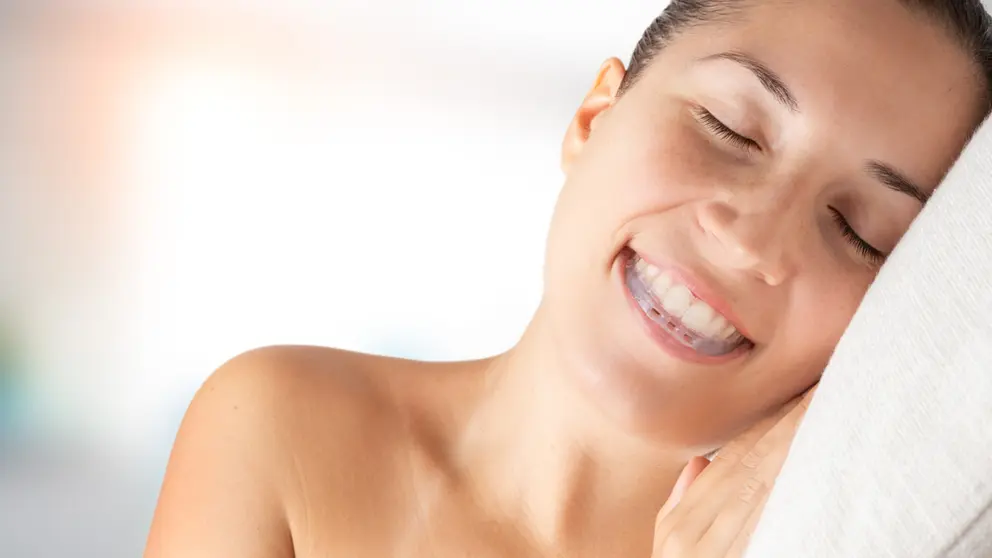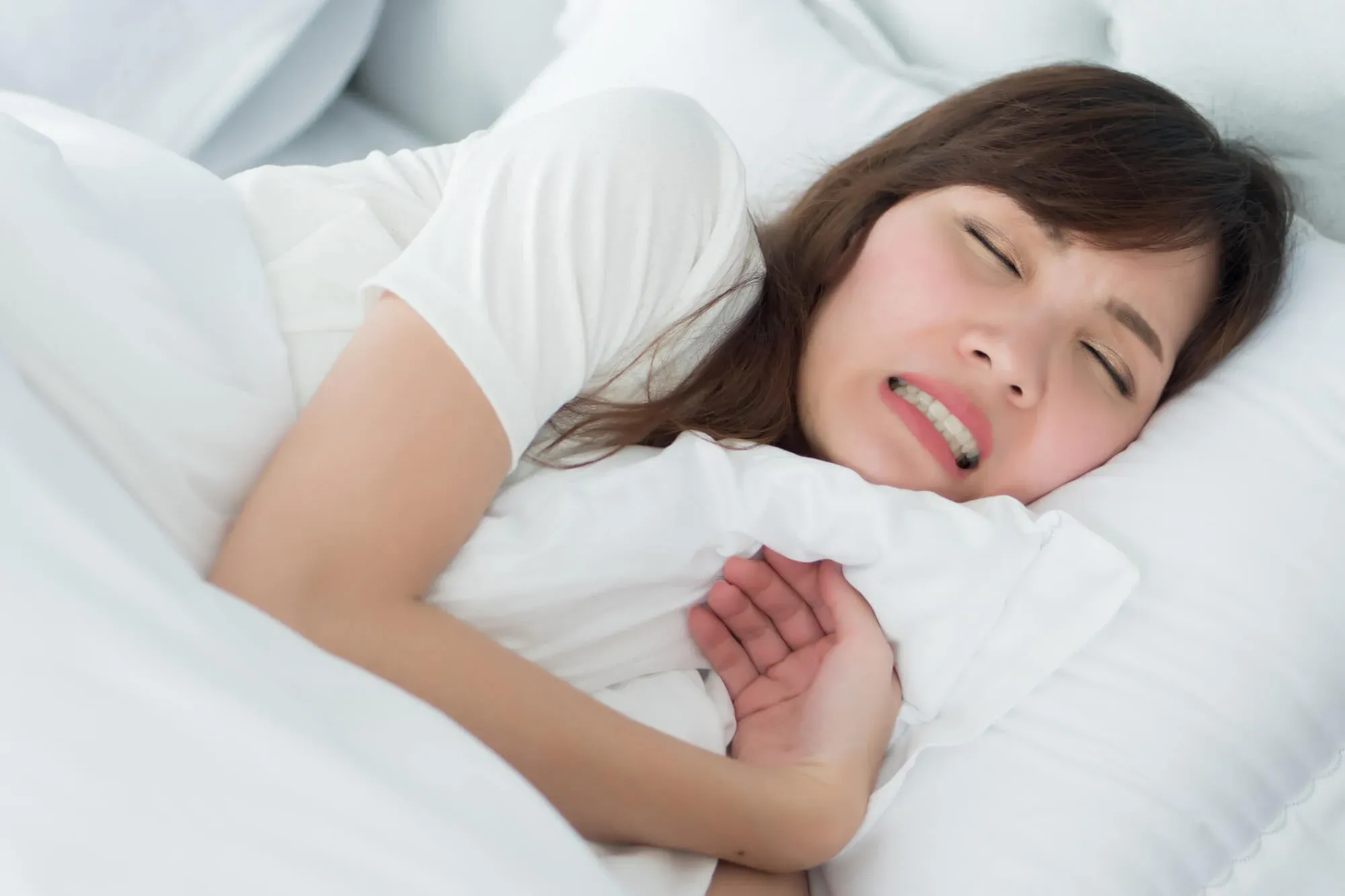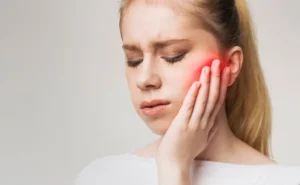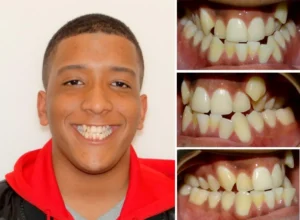Bruxism Affect Your Life?
Severe bruxism inflicts irreversible physical damage to the mouth. The enamel and gums, once worn down, will not regenerate. This wear leads to increased pain, soreness, and sensitivity as the strain intensifies.
In addition, the pain mentioned above can trigger a series of escalating discomforts. bruxism causes and symptoms is crucial to prevent these issues.
TMD , or temporomandibular joint (TMJ) disorder, can make it harder to move your mouth. This could complicate the process of chewing. It can also increase the muscle strain caused by bruxism, or teeth grinding.
In addition to the physical strain of bruxism and TMD , psychological stress can make these conditions worse. Finding ways to relax the muscles is important. This can help ease the symptoms of both conditions. Relaxation techniques can be particularly helpful for this, as broad clinical consensus has associated it with:
- Mental health issues (particularly stress and anxiety)
- Night terrors (often driven by mental health disorders)
- Drug abuse (particularly stimulants that overact the bite muscles)
- Sleep apnea (clenching constricts the airways)
If you believe that other problems are causing your teeth grinding, it’s advisable to consult a counselor. Therapy can be beneficial in reducing anxieties. It can also assist in gradually overcoming any addictions that may be exacerbating your bruxism .
When considering bruxism treatment options, it’s important to address these potential underlying causes. This approach can lead to a significant improvement in the health of your teeth and jaw. Remember, the key is to find a treatment plan that works best for you.
Straining can have a significant impact on your teeth. It can also seriously affect your quality of life. This is particularly true for “awake bruxism”, a condition where you grind your teeth while awake. Addressing this problem is crucial to avoid additional harm and enhance your overall health.
Treat Bruxism

Bruxism and TMD can cause significant damage. Nonetheless, you are not obligated to allow it to continue. You can manage bruxism and TMD effectively.
A method can be employing a mouth guard. Wearing a mouth guard at night can provide relief.
If needed, you can also don it throughout the day. This method helps prevent further damage. Remember, it’s about managing the condition, not just dealing with the symptoms.
Please note that while a occlusal guard can help manage bruxism and TMD, it may not reverse pre-existing damage. But it’s a step in the right direction. About taking control and managing bruxism and TMD effectively.
Like a bike helmet for your head, an occlusal guard will create a protective barrier for your teeth, shielding them from trauma and dispersing blunt force. Additionally, they can stabilize or “deprogram” the muscle movements that lead to bruxism. Retail outlets sell protectors, but it is recommended to obtain them from a dentist or orthodontist.
An oral health professional with experience has the necessary resources. They can create a custom fit for your guard. They can also determine the best type of occlusal guard for your diagnosis.
Keep in mind, utilizing night guards is crucial. This is a crucial term in our conversation regarding dental health. To evaluate the severity of your Bruxism , the oral healthcare professional may:
- Feel for tenderness around your jaw or mouth muscles
- Examine for tooth enamel damage or malocclusions
- Observe the mouth structure with imaging (x-rays)
Once it is determined that bruxism and/or TMD issues are present, the treating dentist or orthodontist will typically then determine the best occlusal guard by testing the bite and testing your personal fit. Certain occlusal guards work better for treating certain discomforts or levels of discomfort than others. Besides appliance wear, it may be recommended that you seek these additional treatments:
- Pain, jaw muscle relaxant, or psychiatric medications (if severe enough)
- Physical stretching exercises to relax the mouth muscles
- Botox injections
- Changing drug and dietary habits
- Orthognathic surgery (to correct jaw & bite alignment, if necessary)
Be Cured?

Bruxism, often known as teeth grinding or clenching, typically decreases as children grow older. In adults, it’s not usually a constant problem needing treatment. However, we should note that severe cases do indeed exist.
While there’s no one-size-fits-all cure, various bruxism remedies and cures can significantly alleviate symptoms and reduce the severity. These solutions can range from lifestyle changes to potential surgical procedures, depending on the severity of the case.
Dealing with bruxism involves addressing multiple issues, such as jaw pain, sore jaws, and other side effects. Treatment might include exercises, medications, therapy sessions, and lifestyle adjustments, like reducing the habit of chewing gum. Since every bruxism case is unique, the remedies need to be personalized to fit individual needs.
You play a crucial role in treating your bruxism. Health professionals provide effective tools. However, the responsibility of utilizing them effectively lies with you.
“Braces” and “Invisalign” are two examples of such tools. They can help manage your condition. But remember, your commitment is key. Maximize the use of these health-supporting tools.



